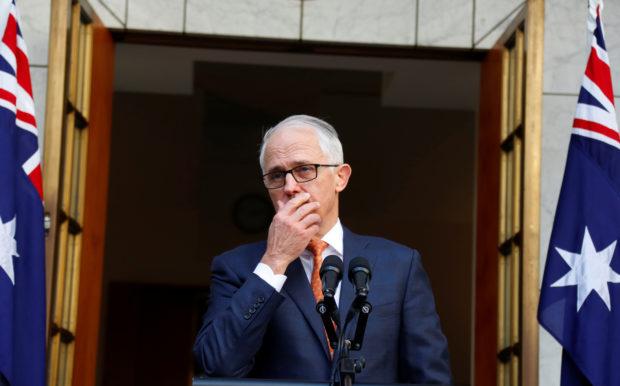Australia’s foreign interference laws designed for China, says ex-PM Turnbull

Former Australian Prime Minister Malcolm Turnbull pauses during a news conference after a party meeting in Canberra, Australia August 24, 2018. REUTERS FILE PHOTO
CANBERRA — Exposing China’s activities was the “key purpose” of Australia’s foreign interference laws, but the scheme has failed to do this, former prime minister Malcolm Turnbull, who introduced the laws, said on Tuesday.
The Australian government was careful not to name China when introducing laws to prevent foreign interference in 2018, but the move nonetheless sparked tension with Australia’s largest trading partner that later developed into a diplomatic freeze.
Turnbull told a parliamentary committee the “key purpose” of a foreign interest register was to disclose the links the Chinese Communist Party’s United Front Work Department had formed in Australia.
“The most active state and political party seeking to influence public affairs in Australia is China … but they don’t seem to appear on the register,” he told a parliamentary inquiry in Canberra on Tuesday.
The law was aimed at authoritarian states and not Australia’s security allies, and geopolitical tensions had worsened since it was introduced, he added.
Article continues after this advertisementThe Albanese government, elected in May, has sought to stabilize relations with Beijing and wants to restart exports to China that were hit by trade bans during the diplomatic dispute, but says it has not changed its policy on China.
Article continues after this advertisementThe committee is examining whether to adjust the foreign interference laws to improve their effectiveness.
Australia’s government plans to “out” foreign interference operations that are targeting politicians, academics and community leaders, Home Affairs Minister Clare O’Neil said earlier this month.